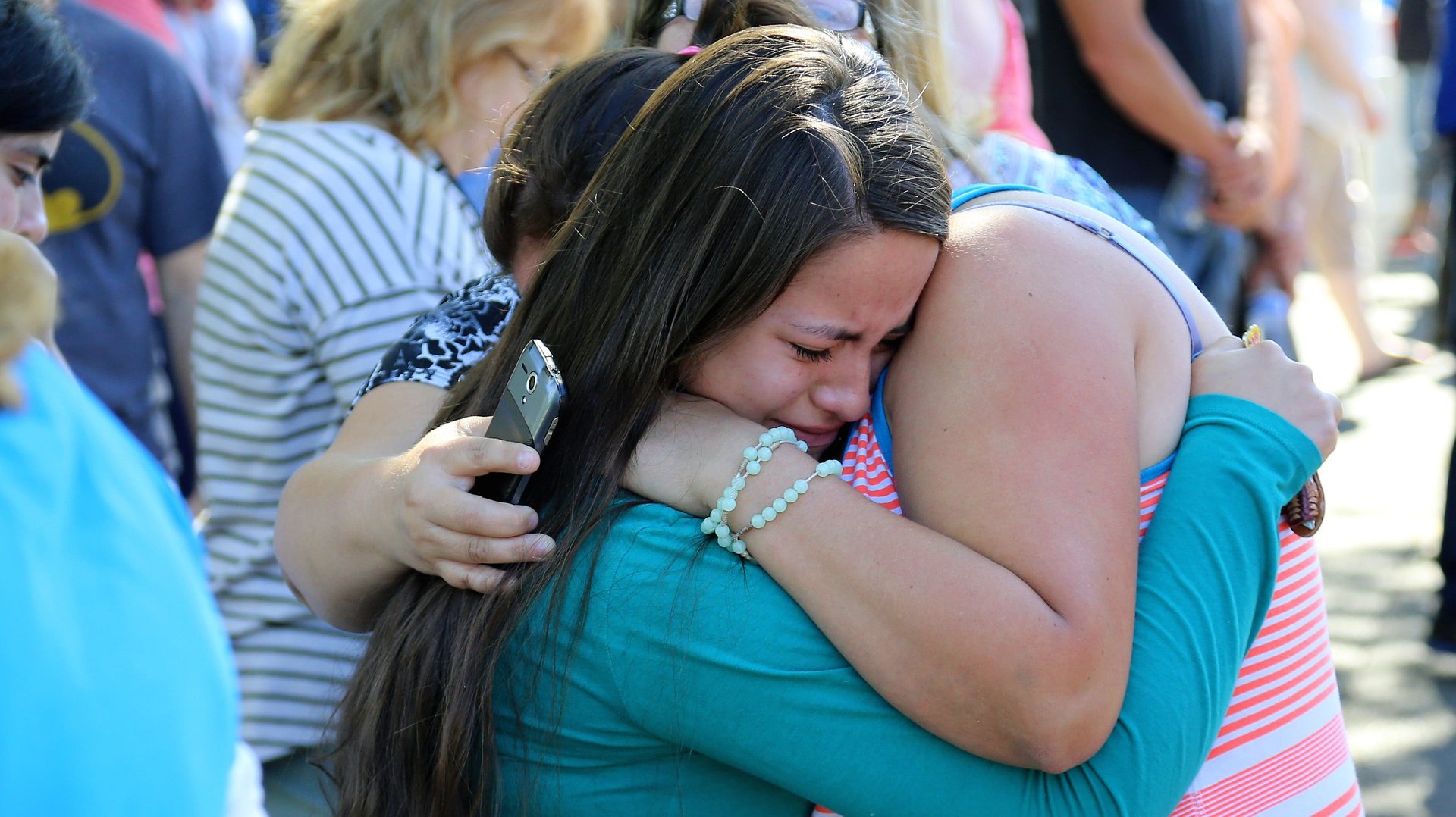As a professor in America, I could be gunned down for teaching Shakespeare
With every instance of mass murder on a school campus, it becomes more and more challenging for teachers to continue to walk into their classroom.


With every instance of mass murder on a school campus, it becomes more and more challenging for teachers to continue to walk into their classroom.
Yesterday afternoon, news outlets reported that a man had gone to Umpqua Community College (UCC) in Roseburg, Oregon, and shot 10 students and teachers dead, with many others injured. The news broke just as I was about to commute to Fordham University, where I am an adjunct professor.
There have been 45 school shootings so far in 2015; UCC marks the 17th on college campuses this year, according to TIME. The number of mass shootings so far in 2015 outnumbers the days since Jan. 1.
I tried to persuade myself to not get on the subway to the Bronx. This isn’t worth it, this isn’t worth it, I kept repeating as the train rattled over the tracks. As an adjunct, I make around $250 a class and don’t have health insurance. What if I get injured on campus? Who pays if I get shot?
It might sound like an oddly calculated consideration—but these shootings don’t feel “random” to me anymore. We are living in a world where disaffected people seem drawn to my area of work. Where my very occupation puts a target on my back, and on the backs of my students.
I am powerless as a teacher in the classroom. I am. Teachers are, no matter the pay grade, or education level, or type of institution. And everybody knows it.
During my lecture on Shakespeare’s As You Like It, I was distracted. While rattling off a definition of “pastoral,” I walked to the back of the room to shut the door. I mentally registered the door’s click but felt gutted when I realized the door had no lock. And why would there be? I teach in a classroom on the basement level of an academic building. Just keep talking about Shakespeare. Academia. Institutions. Imprisonment. Foucault. My mind raced.
I am powerless as a teacher in the classroom.
The shooter’s name, his story, didn’t matter to me then and it doesn’t matter to me now. But one thing I do know is that the cyclical violence perpetrated by young men has long had its psycho-social origin in misogyny.
As Mary Elizabeth Williams wrote in Salon, the UCC shooter’s motive seems to be the same as the UCSB shooter’s. In previous writings, I myself have elaborated upon the connection between the male “virginity” myth and violence against women. I have lived through enough shootings to have amassed what feels like an entire canon on the motivations of men like him.
And yet, again, I don’t care about this kid or his issues. I care about my kids, my students. And what matters to me—what has bred great anxiety and what has fomented terrific anger in me—is that my attempts to teach my students to the best of my ability are being blocked at every turn. They are blocked by the corporatization (also called the “adjunctification”) of academia, as I’ve explained in a previous piece at Quartz. And they are blocked by the increasing frequency of gun violence, capped, in my mind, by yesterday’s massacre.
Gun violence is an epidemic in this country. To date, nearly 10,000 people—9,948 to be exact—have been killed by guns in America in 2015 alone, according to the Washington Post. Gun proponents and conservatives bent on defending their misreading of the Second Amendment, comically believe the solution to gun violence is more guns. Not only do statistics consistently debunk the myth that more guns reduce gun violence, but, guess what? I don’t want a gun.
Let me say this again: I am a teacher. My job is to teach your children how to develop the critical and analytical skills they will need to comprehend texts, to induce independent thoughts and analysis, and to articulate these ideas in communicable, grammatically and syntactically correct, language. My job is to help your children become functional adults.
This is my job and books are my tools—arguably my “weapons.” But not guns. Never guns. I don’t want to be scared to leave for school. My classroom should be a safe space, not a combat zone.